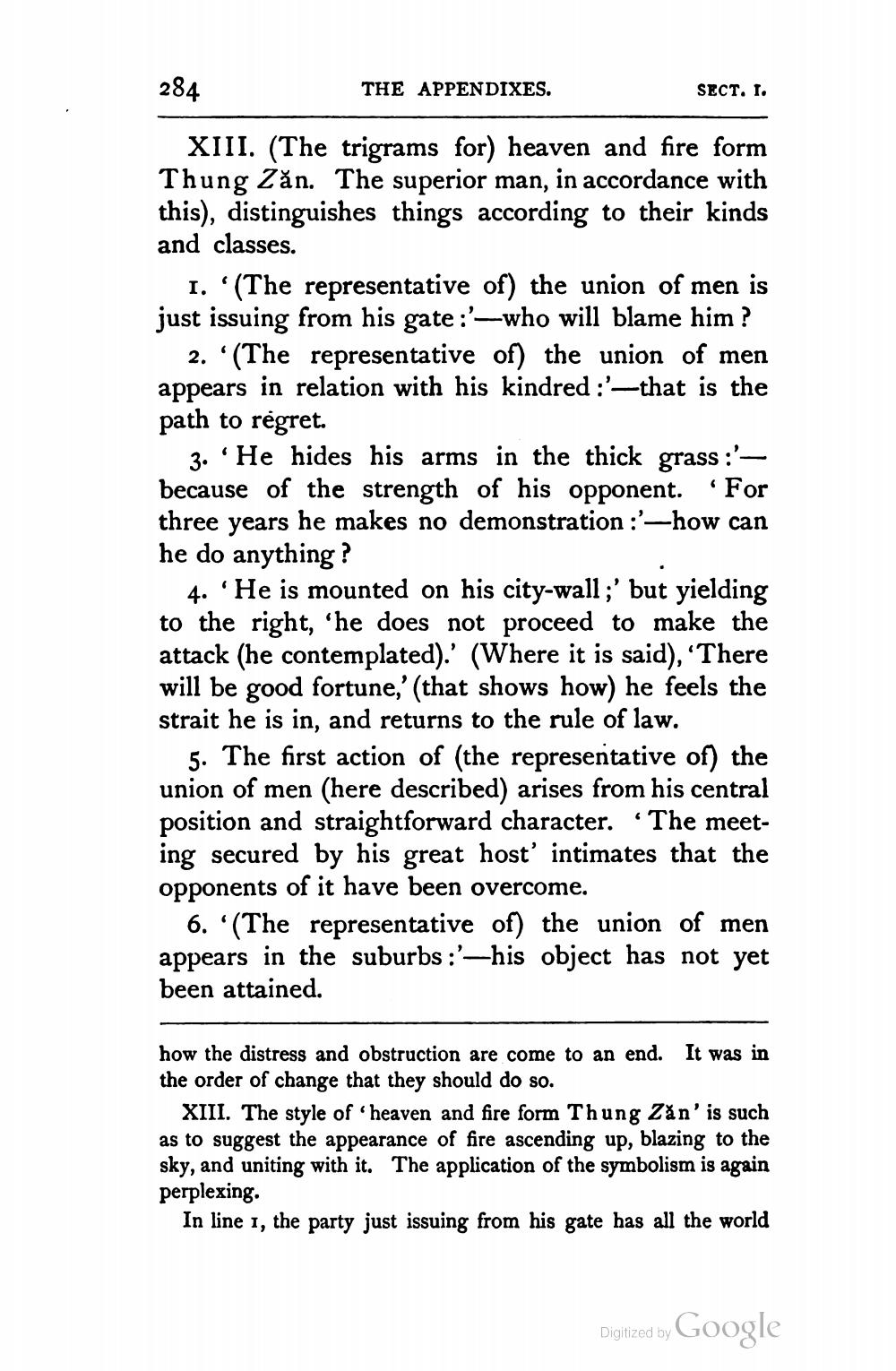________________
284
THE APPENDIXES.
SECT. I.
XIII. (The trigrams for) heaven and fire form Thung Zăn. The superior man, in accordance with this), distinguishes things according to their kinds and classes.
·
I. (The representative of) the union of men is just issuing from his gate:'-who will blame him?
2. (The representative of) the union of men appears in relation with his kindred :'-that is the path to regret.
"
3. He hides his arms in the thick grass:'because of the strength of his opponent. 'For three years he makes no demonstration :'-how can he do anything?
"
4. He is mounted on his city-wall;' but yielding to the right, 'he does not proceed to make the attack (he contemplated).' (Where it is said), 'There will be good fortune,' (that shows how) he feels the strait he is in, and returns to the rule of law.
5. The first action of (the representative of) the union of men (here described) arises from his central position and straightforward character. The meeting secured by his great host' intimates that the opponents of it have been overcome.
6. (The representative of) the union of men appears in the suburbs:'-his object has not yet been attained.
how the distress and obstruction are come to an end. It was in the order of change that they should do so.
XIII. The style of 'heaven and fire form Thung Zăn' is such as to suggest the appearance of fire ascending up, blazing to the sky, and uniting with it. The application of the symbolism is again perplexing.
In line 1, the party just issuing from his gate has all the world
Digitized by
Google




